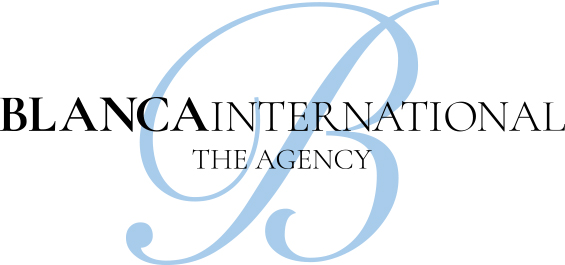Mortgage and finance of property in Spain. If you are planning to buy property in Spain, you should read our guide to see what Spanish mortgages are available and how to apply. Everything you need to know about property mortgage in Spain.
There are no restrictions on foreign buyers buying property in Spain, but it is important to be aware of the details of Spanish mortgages before buying your own property. Here we explain the most important things to consider before applying for a mortgage in Spain. Blanca International work with most of the banks on Costa Blanca, and we can offer you help and advice when you are going to apply for a mortgage. Please contact us for more information about how we can help you get a mortgage in Spain.
Mortgages in Spain
Spanish mortgage lenders offer a variety of mortgage products specifically designed for foreigners and expat investors. If you are buying in Spain, you need to think long term, as Spain’s capital gains tax of more than 20% can offset any benefits of buying a property for short-term investors.
In addition, buyers must count on real estate transaction costs of around 10-15% of the property’s value. Although house prices are rising, it is likely that you will need at least three to five years to offset these costs.
Spain offers the usual types of mortgages if you want to buy a property in Spain, with extra expansion-focused Spanish mortgages offered by international and Spanish banks. Many Spanish mortgages have no restrictions on purchase price or nationality, but some products favor buyers from specific countries or who buy property in specific regions.
The biggest difference between the various mortgage loans offered is the maximum loan value (LTV) that the banks allow. Those who live in Spain can generally borrow up to 80% of the assessed value of the property, while those who do not live in the country are limited to 60-70% LTV, depending on the type of mortgage loan.
The good news is that it may be possible to borrow significantly more of the property’s value – up to 100% in some cases – when you buy one of the bank’s own compulsory properties in Spain. Some banks may only be willing to provide mortgages to foreign buyers for their own homes. In this case, the options for getting a mortgage may be closely related to a particular property.
In some cases, the mortgage you receive may be based on the bank’s assessment of the property rather than the price you pay for it. Thus, if the value of the property is valued at € 125,000, you can traditionally borrow up to € 87,500, even if your purchase price was only € 100,000.
Types of mortgages in Spain
Spain offers the usual types of mortgages when you buy property in Spain, and most Spanish mortgages are variable rates linked to the annual Euribor (European inter-bank offered rate) plus a margin.
For example, with Euribor of -0.37% at the beginning of 2019, and variable mortgage rates of between 1.8-3%, you could theoretically pay just 1.43%. Many lenders also offer fixed-rate mortgages, which range from 2.4-3%, depending on the loan period.
Cost of getting a mortgage in Spain
If you are using a Spanish lender, you should expect up to 10-15% of the total purchase price for various transaction costs. Typical costs include the transfer and stamp fees (explained below), the bank’s setup and opening fees, notary fees and registration fees, and a bank fees charge.
Property transfers in Spain are done through a notary public. As soon as the notary certifies that all the documents are in order, you are ready for the taxes and fees to be paid.
Taxes on Spanish property purchases
Property in Spain is subject to various Spanish taxes, all of which are paid by the buyer. Transfer tax is up to 10% of the purchase price, depending on the location of the property. For example, the transfer tax in Madrid is set at 6.1%, while in Catalonia and Valencia you pay the highest rate of 10%.
The stamp fee also varies by location and varies between 0.5-1.5% of the purchase price. Sometimes, the buyer pays the seller’s plusvlia tax, which will vary based on how long the seller has owned the property. These fees are usually included in loan termination costs, although they may have to be paid directly to one or more tax authorities.
Property insurance in Spain
All Spain residential properties are legally obliged to have home insurance to cover the value of the property. Life insurance is not compulsory, but many lenders require borrowers to take out life insurance sufficiently to pay off the outstanding mortgage balance.
You may also consider getting a mortgage insurance, which would protect you if you end up in a situation where you cannot pay off your loan. Having an active life insurance policy and a mortgage insurance policy before applying for a mortgage in Spain can give you a better offer from the bank.
Tax considerations and deductions in Spain
Non-residents in Spain are responsible for paying Spanish income tax and a potential tax on Spanish assets. However, if you are in Spain for more than 183 days of the year, you may be deemed to be resident for tax purposes.
This will require you to pay 19-21% tax on profits (if you sell your property in Spain). In addition to taxing rental income, Spain also requires property taxes of between 1% and 2% of the property’s value per year, depending on location. The good news, however, is that Spain offers the option of deducting interest rates on mortgages, repairs, maintenance, rental fees, and up to 3% depreciation on the purchase price of a home.
Before applying for a mortgage in Spain
Before you apply for a mortgage in Spain, you need the Idento de Extranjeros (NIE) – an identification number for foreigners. This number is similar to a US social security number or a UK national insurance number. You cannot buy real estate or get a mortgage in Spain without a NIE.
If you are in Spain, you can start the NIE application process at any local police station. Outside of Spain, the best way to apply for a NIE is to contact your local Spanish consulate.
When applying for an NIE, you will need the following documents:
- A completed EX-15 form
- Support document (s) to show why you need an NIE
- Copy of your original passport
- Two passport photos
- € 9 – € 12 fee for sending form 790
How to Apply for a mortgage in Spain
Most of the major Spanish banks in Spain offer mortgages to non-residents, notably Banco Sabadell, Bankinter, Bankia, Banco Bilbao Vizcaya Argentaria (BBVA) and CaixaBank. Blanca International work with most of the banks in Spain, and we can offer you help and advice when you are going to apply for a mortgage. Please contact us for more information about how we can help you get a mortgage in Spain.
In addition, it is always recommended to obtain a non-binding mortgage offer from the mortgage specialist in Spain Morgage Direct.
When applying for a mortgage in Spain, the best advice is to start early and obtain offers from multiple lenders. While the official housing process can only begin after a sales agreement is reached, it is wise to start working on the loan process while looking for housing.
Documents you need to apply for a mortgage in Spain
Whether you are going through a Spanish or an international bank, you must have the following documents:
- NIE number
- Proof of employment or income
- An advance agreement with the seller
- Proof that the property tax has been paid to date
- Details of current debt and mortgage
- Copy of all your existing actions in Spain and elsewhere
- Overview of your current assets
Once you have delivered all the necessary documents and the bank has processed everything, the bank will provide you with a loan. This doesn’t have to be the bank’s best offer, so don’t be afraid to take it to a competitor. Often the competitor will try to give you a better offer – which you can then take to the original bank to see if they are willing to improve their original offer.
Additional costs of applying for a mortgage
Although you do not have to pay anything to get information, advice or consultation on the mortgage, you may have to pay for a real estate appraisal, local lawyer or Spanish translator (one who does not work for the lender).
These can help you avoid being misinformed or pushed by highly motivated sellers who may be willing to take advantage of foreign buyers.
Destinations Spain mortgage
Alicante – Alcalali – Altea – Albir – Alfaz del Pi – Benissa – Benidorm – Benidoleig – Benilloba – Benitachell – Calpe – Costa Blanca – Costa Blanca North – Cumbre del Sol – Denia – El Vergel – Gata de Gorgos – Finestrat – Javea – Jalon – La Nucia – Lliber – Moraira – Parcent – Pedreguer – Orba – Polop – Teulada – Villajoyosa




